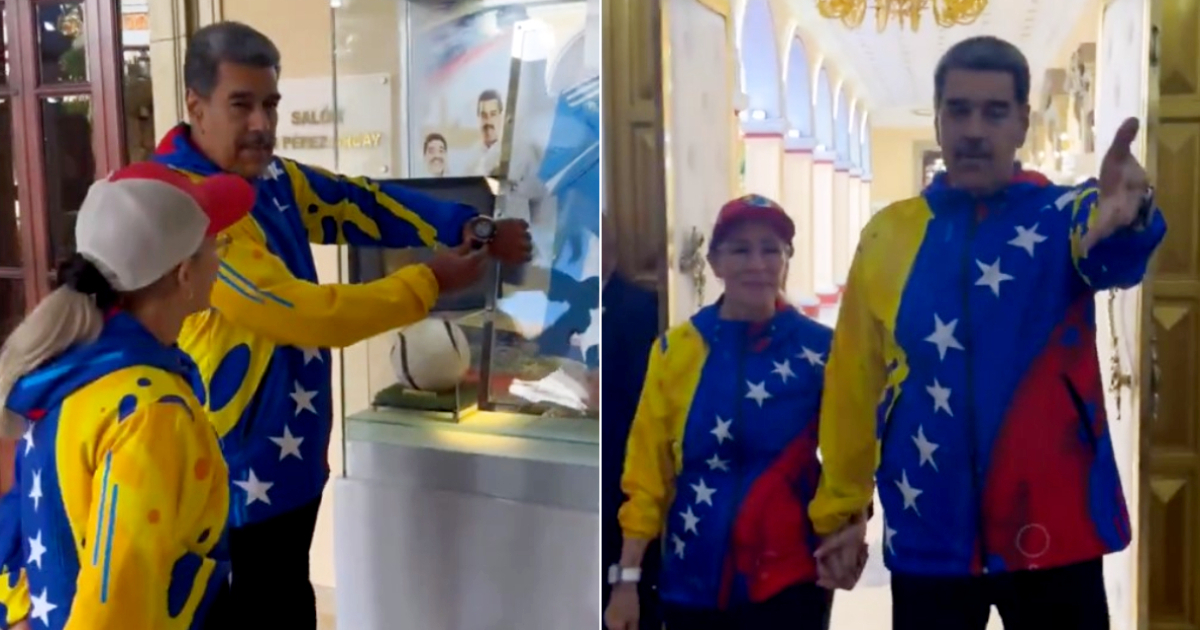
The political climate in Venezuela has become more tense following the recent proclamation of Nicolás Maduro as the winner of the presidential elections by the chavista electoral authority, a decision strongly rejected by the opposition.
This Monday, July 29, 2024, the chavista electoral authority of Venezuela announced Maduro's re-election, a result that immediately triggered a wave of protests and rejection from the opposition and a significant part of the population.
The electoral controversy has created an environment of uncertainty and potential confrontations in the South American country.
According to the electoral authority of the regime, Maduro would have won by a considerable margin, consolidating his hold on power. The National Electoral Council (CNE) awarded the Chavista leader 51.2% of the votes compared to Edmundo González's 44.2%.
However, the opposition, led by prominent figures such as María Corina Machado, has declared that these results are fraudulent and do not represent the will of the Venezuelan people.
Machado, one of the most vocal leaders of the opposition, strongly refused to acknowledge Maduro's victory. In a strong statement, Machado asserted that "Venezuela has a new elected president and it is Edmundo González," referring to the opposition candidate who, according to her, was the true winner of the elections.
Reports of irregularities
The opposition has filed numerous complaints about irregularities during the electoral process. Among the most serious allegations are vote manipulation, intimidation of voters, and control of polling stations by forces loyal to Maduro's regime.
These accusations have been the spearhead of the protests and the mobilization of the opposition, which demands a thorough review of the counting and the intervention of international observers to ensure the transparency of the process.
One of the main complaints focuses on the alteration of results in the most strategic polling centers. The opposition claims that in several locations there was a significant discrepancy between the recorded votes and the results announced by the electoral authority.
Additionally, cases of coercion against electoral officials and manipulation of electronic voting systems were reported, which casts doubt on the integrity of the entire process.
International reactions
The international community has closely followed the developments in Venezuela. Several nations and international organizations have expressed their concern over allegations of fraud and have called for peaceful dialogue between the parties.
The United States, the European Union, and several Latin American countries have issued statements urging Maduro's government to allow an independent investigation into the reported irregularities and to respect the will of the Venezuelan people.
"Recently, we saw the announcement from the electoral commission of Venezuela. We are seriously concerned that the announced result does not reflect the will or the votes of the Venezuelan people," stated the U.S. Department of State on its social media.
He also considered it "fundamental that every vote is counted fairly and transparently, that electoral officials share the information immediately with the opposition and independent observers without delay, and that the electoral authorities publish the minutes."
"The international community is closely monitoring this and will respond accordingly," the United States government warned through its embassy in Venezuela.
The president of Chile, the socialist Gabriel Boric Font, also expressed his skepticism regarding the official results presented by Maduro's regime.
In a post on his social media, the Chilean president addressed the "Maduro regime," pointing out that "the results they publish are hard to believe."
"The international community, and especially the Venezuelan people, including the millions of Venezuelans in exile, demand total transparency of the records and the process, and that international observers not compromised with the government account for the truthfulness of the results. From Chile, we will not recognize any results that are not verifiable," Boric Font added.
However, not all international actors have adopted the same stance. Countries allied with Maduro's regime, such as Cuba, Russia, and China, have recognized the electoral results and congratulated the president on his reelection.
Implications for the future of Venezuela
The electoral crisis in Venezuela has profound implications for the future of the country. The opposition's refusal to accept the results and the Maduro regime's persistence in holding onto power foreshadow a period of greater polarization and conflict.
Protests and demonstrations could intensify, leading to possible repression by the government, which would further increase social tensions.
The economic scenario also offers no respite. The prolonged economic crisis, characterized by hyperinflation, unemployment, and the scarcity of basic products, could worsen due to political instability.
Venezuelans face an uncertain future, where the search for peaceful and democratic solutions will be key to preventing further erosion of the country's institutions and social fabric.
In conclusion, Maduro's proclamation as president of Venezuela amidst accusations of electoral fraud has deepened the political and social crisis in the country.
The opposition, led by figures like María Corina Machado, rejects these results and demands a review of the electoral process. The international community remains divided in its reactions, while Venezuelans face a future filled with uncertainty and challenges.
What do you think?
SEE COMMENTS (1)Filed under: